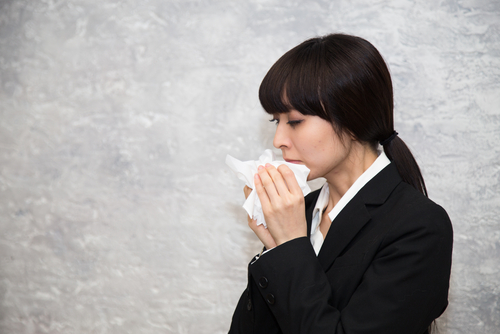
"Under-the-Tongue" Allergy Drops or Tablets - The Truth Unfolded!
The truth about Sublingual Immunotherapy
Time and again, I am asked by my patients if sublingual or under-the tongue” allergy drops” are an option for their allergy and asthma treatment. Allergen immunotherapy has been a long term relief option for patients who have severe symptoms, when medications fail OR when patients do not like dependence on medications and are looking for a “natural” cure. There are several ways to administer immunotherapy.
Subcutaneous allergen immunotherapy (SCIT), or “allergy shot therapy,” has been around since the early 1900s. It is considered a safe and well-accepted therapy for allergic rhinitis and asthma. For more details, read Allergy Shots (Allergen Immunotherapy) Sublingual immunotherapy (SLIT) or “allergy oral tablet therapy” has collected a great deal of attention lately. The FDA recommended approval of Oralair™ and Grastek™ tablets, which are meant to treat grass pollen allergy symptoms and Ragwitek™ for ragweed pollen allergy symptoms. These tablets are available in the market currently only by prescription by an allergist. While we at the The Allergy Group – one of the best asthma and allergy clinics in Treasure Valley- are excited about new therapies for allergic and asthmatic disorders, it is definitely worrisome about what is starting to happen in the medical community.
It is definite, based on research studies, that these pharmaceutical company manufactured sublingual tablets are effective, but it is not at all certain that compoun ded sublingual or under-the-tongue “allergy drops” (liquid treatments made up from allergen extracts that are only approved for injection therapy) will benefit patients. There are various reasons for our concerns. First, the dose needed for effective compounded sublingual “allergy drops” therapy should be 30 times more than that needed for allergy injection therapy. This is because the enzymes present in our oral and gastrointestinal symptoms can digest these liquid drops rendering them ineffective if given at any less doses. This means it should be of very high cost to the patient if being treated correctly and effectively. On comparing the prices for the two, allergy injection shot therapy is much cheaper and effective. Secondly, there is no research data or FDA approval on compounding these allergens. Moreover, there is really no good data to support treating more than one allergen at a time with sublingual therapy.
In Europe, where sublingual immunotherapy is famous, only one allergen at a time is used. However, this cannot apply to Americans who are usually allergic to more than one environmental allergen. Thirdly, allergy shot (SCIT) therapy has a disease modifying effect, which mean that, on completion of the injection therapy, the body’s immune system retains the immunity even after stopping the treatment (and hence no need for asthma and allergy medications to control symptoms), which is not known to happen with other forms of the allergy liquid or sublingual immunotherapy treatment. The effectiveness of the agent in liquid format (when the only agent approved for sublingual use by FDA is tablet form) is not clear. Also concerning are the claims that sublingual therapy is more effective than injection therapy for allergies.
There is absolutely no basis for this. Based on detailed medical literature review, majority of the evidence suggests a greater benefit with injection therapy. There is no question that the idea of sublingual therapy allergy is an attractive one- being able to use it at home, and no involvement of needles, however, the question is why waste your resources if it’s not going to be effective treatment in the long run.
Moreover, allergic individuals in the US tend to be allergic to multiple allergens and hence, allergy shots (allergen immunotherapy) seem to be the best option at this time. SLIT will have a place in certain situations and board-certified allergists at The Allergy Group will decide what’s best for the patient. However, we strongly suggest to the people in Treasure Valley to be cautious and aware of the limitations of sublingual immunotherapy. You deserve the best care in Treasure Valley. Ask us how we can help. Call 208-377-4000 or fill our online appointment form to schedule an appointment.

